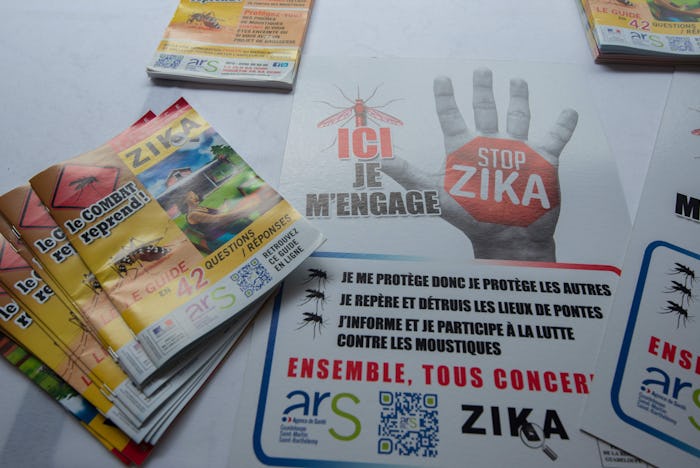Life

Should You Cancel Your Winter Travel Plans Because Of Zika?
For most Americans, the most reliable method of protecting ourselves and our families from the mosquito-borne Zika virus is to stay far, far away from infected areas. Well, maybe not necessarily far, far away, but definitely out of them. That's not too much of a challenge within the United States (with the glaring exception of Florida), but visiting many of our neighboring countries could be a gamble. So, while it's not a 100 percent given that you should cancel your winter travel plans because of Zika, vacationers do need to get educated about the risks in their potential destinations, take a look at who's traveling, and determine whether whether the threat is worth catching those sweet, sweet rays of sunshine on at that beach resort in Jamaica.
First, if you truly are planning a trip to Jamaica and want to avoid Zika, now may be the time to reconsider. The Centers for Disease Control and prevention has issued travel warnings on many countries in the Caribbean, the Pacific Islands, South and Central America, as well as Cape Verde, Mexico, and Singapore. These countries, and now parts of Florida, are home to the vector mosquito that transmits the virus. Anyone there runs the risk of sustaining a bite, but pregnant women need to be especially cautious: Their unborn babies can end up with devastating birth defects if they contract it in utero, like the microcephaly that results in abnormally small heads, brain damage, and developmental delays.
The stakes are so high for babies still in their mother's womb that the unanimous consensus from public health officials is that they stop, turn around, do not pass go, do not get on that plane. But for less at-risk populations — like adults who oftentimes experience relatively mild or even no symptoms if they come down with the the sickness — the situation is markedly less dire. If you're not pregnant (and there's absolutely NO chance you will become pregnant before, during, or right after the trip), it's not imperative that you cancel your reservations and shelve all hopes of exploring the Mayan ruins over Christmas.
Zika is certainly a very real threat, but it's by no means a death sentence or a sure thing. The fact that there is not yet a vaccine to prevent it available to the public may convince some to take a winter staycation instead, but there's encouraging news as well. The World Health Organization announced in early September that there have zero confirmed cases of Zika in athletes or travelers to the Olympics in Rio de Janeiro, Brazil, last month. And Brazil is widely recognized as the epicenter of the global health crisis.
So, it's certainly possible for non-pregnant people to safely visit a Zika-infected country (but be sure to pack the bug spray). But there are safety precautions they need to take when they return, too. The CDC recommends that women who travel to an infected area use condoms or abstain from sex for at least eight weeks from diagnosis or the start of symptoms, because the illness can also be transmitted through sex, and infected men wait six months, because the virus lingers in semen longer. And both men and women should use condoms or wait to have sex for eight weeks after traveling if neither exhibits symptoms.
Zika is a serious threat, but not an insurmountable one. Be safe, follow all travel guidelines, and enjoy winter break no matter if that means staying home or vacationing abroad.